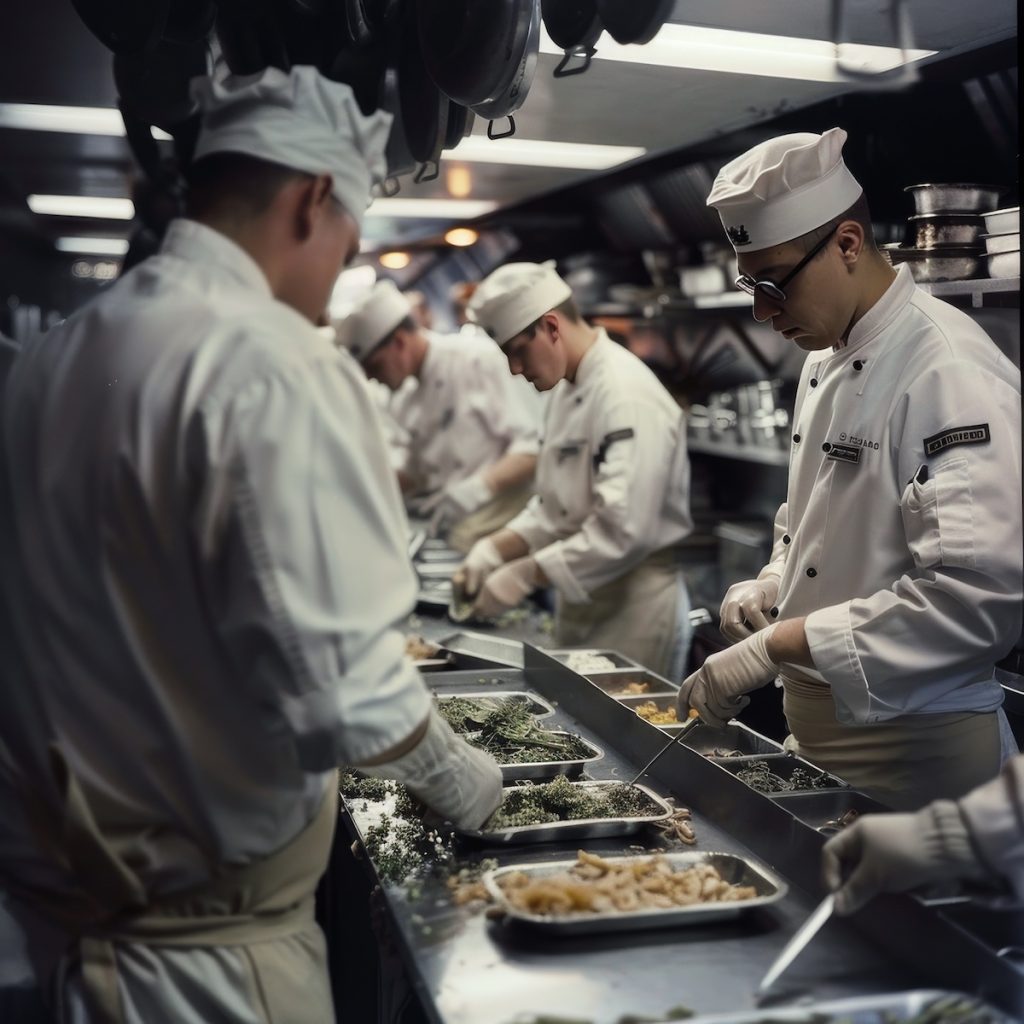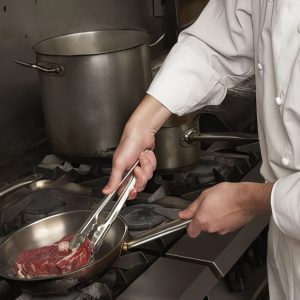A Guide to Culinary Jobs in Government and Public Institutions
The world of culinary arts extends far beyond the confines of restaurants and private enterprises. Government culinary opportunities offer a unique and rewarding career path for those passionate about food and service.
Whether working in military kitchens, school cafeterias, correctional facilities, or public hospitals, these roles ensure that diverse populations receive nutritious, delicious meals. Moreover, government culinary jobs often come with job stability, comprehensive benefits, and the chance to serve communities in meaningful ways.
In military settings, chefs prepare meals that fuel and comfort soldiers, contributing to their overall morale and well-being. School nutrition programs require culinary professionals to craft balanced meals that meet strict nutritional guidelines, impacting young learners’ health and academic performance.
In correctional facilities, skilled chefs help maintain order and nutrition standards, providing an essential service in challenging environments. Public health institutions and hospitals rely on culinary experts to create specialized diets for patients, aiding their recovery and well-being.
This post explores the diverse array of culinary opportunities within the government sector, highlighting the unique challenges and rewards these roles offer. Whether you’re an experienced chef or just starting your culinary journey, government positions provide a stable, impactful, and often overlooked career path worth considering.
Government Culinary Opportunities
- Military Chefs/Cooks: Prepare and cook meals for military personnel, ensuring they receive nutritious and well-balanced diets.
- School Cafeteria Workers/Chefs: Plan and prepare meals for students, adhering to nutritional guidelines and safety standards.
- Correctional Facility Cooks: Prepare and serve meals to inmates, maintaining dietary requirements and security protocols.
- Public Hospital Chefs: Design and prepare patient meals, catering to specific dietary needs and medical conditions.
- Government Building Cafeteria Workers: Operate in government office buildings, serving meals to employees and visitors.
- Senior Center/Nursing Home Cooks: Provide nutritious meals to elderly residents in public senior centers and nursing homes.
- Disaster Relief Food Service Workers: Assist in preparing and distributing meals during emergencies and disasters.
- Food Inspectors: Ensure food production and distribution facility compliance with health and safety regulations.
- Dietitians and Nutritionists: Plan and oversee nutritional programs in public institutions like schools, hospitals, and correctional facilities.
- Community Outreach Program Coordinators: Manage food distribution and meal programs for underserved populations.
- Parks and Recreation Food Service Workers: Operate concessions and dining facilities in public parks and recreation areas.
- Veterans Affairs Food Service Workers: Provide meals to veterans in VA hospitals and care facilities.
- Public Health Nutritionists: Develop and implement nutrition education programs and policies at the local, state, or federal level.
These positions offer the chance to serve various community needs while ensuring food safety and nutrition standards are met.
Why Government Jobs?
When considering government culinary opportunities, it’s essential to be aware of several key aspects:
Job Stability and Benefits
- Security: Government jobs often provide more excellent job stability than the private sector, with less risk of layoffs and business closures.
- Benefits: Comprehensive benefits packages typically include health insurance, retirement plans, paid leave, and sometimes tuition reimbursement for further education and training.
Training and Certification
- Requirements: Some positions may require specific certifications, such as ServSafe or HACCP (Hazard Analysis Critical Control Point), particularly for food safety and sanitation roles.
- On-the-Job Training: Many government roles provide on-the-job training, allowing you to gain experience and skills while working.
Work Environment
- Variety: The work environments vary greatly, from the structured settings of military bases and correctional facilities to the more dynamic and diverse environments of disaster relief and community outreach programs.
- Challenges: These roles may have unique challenges, such as working with restricted budgets, adhering to strict nutritional guidelines, or operating under high-security conditions.
Impact and Service
- Community Service: Government culinary roles often focus on serving specific communities, such as children, the elderly, veterans, and low-income populations, providing a sense of purpose and fulfillment.
- Nutrition and Health: By ensuring access to nutritious meals, these jobs play a critical role in public health and welfare, often contributing to better health outcomes for the communities they serve.
Career Advancement
- Growth Opportunities: Many government culinary positions offer clear pathways for career advancement, including supervisory and managerial roles.
- Professional Development: Opportunities for continuing education and professional development are often available, enabling employees to enhance their skills and advance their careers.
Regulations and Standards
- Compliance: Government culinary roles require strict adherence to food safety regulations, nutritional standards, and health guidelines, which can vary by state and institution.
- Innovation: Despite the regulatory environment, there is often room for innovation in menu planning and food preparation to meet diverse dietary needs and preferences.
Collaboration
- Teamwork: Working in government culinary positions often involves collaboration with dietitians, nutritionists, healthcare providers, and other professionals to ensure that meals meet the necessary standards and requirements.
Understanding these aspects can help you better navigate and appreciate the unique opportunities and challenges associated with culinary careers in the government sector.
















2 Responses
I will love to run and cook school or any related kitchen for a government I have 21 years experience. thanks
How do i apply for chef jobs in the goverment..